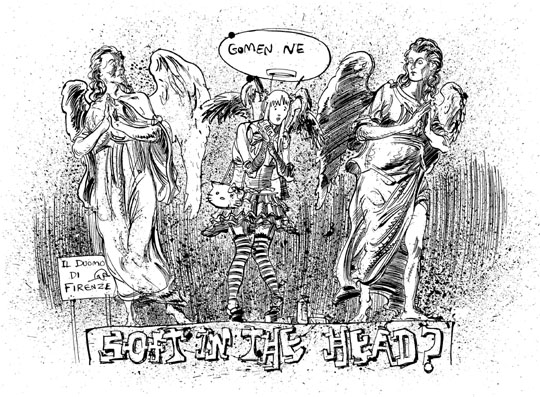In February this year, a Japanese university student scribbled her name and that of her college on the walls of Florence's Duomo. The following month, the university received complaints from Japanese travelers embarrassed to find Japanese graffiti on a World Heritage Site. In June, after another Japanese traveler put pictures of the graffiti on his blog, the media picked up the story. The resulting furor eventually saw the girl return to Italy at her own expense to offer a tearful apology.
The Florence authorities, surprised and delighted by the gesture, praised the civility of the 19-year-old fashion student. The act of apology itself was perhaps not so surprising. Japan is very much a "culture of apology" where "sorry" and "thank you" are often interchangeable. Japanese life is a constant stream of apology, although how much of this is sincere and how much is ritual apology is a moot point. What was surprising about the graffiti incident was the intensity of the reaction.
The perpetrators — which soon grew to include three Kyoto Sangyo University students and a schoolteacher — were roundly condemned. Gifu University fielded more than 500 phone calls complaining about the incident and the Duomo was flooded with e-mails from citizens purportedly ashamed to be Japanese. One Sankei Shimbun headline read: "Japan's shame: graffiti on World Heritage Site."



